Here is some more detailed answer with full class.
couple of points to note:
I had to use spy instead of mockStatic
I had to move @PrepareForTest to method level.
As someone mentioned in other answers I also had to add following dependency
org.powermock:powermock-module-junit4-rule-agent:2.0.9
Below is my full class code for reference:
import java.util.ArrayList;
import java.util.Arrays;
import org.elasticsearch.action.ActionFuture;
import org.elasticsearch.action.search.SearchRequestBuilder;
import org.elasticsearch.action.search.SearchResponse;
import org.elasticsearch.action.support.IndicesOptions;
import org.elasticsearch.client.Client;
import org.elasticsearch.index.query.BoolQueryBuilder;
import org.elasticsearch.index.query.QueryBuilder;
import org.junit.Assert;
import org.junit.Rule;
import org.junit.Test;
import org.junit.runner.RunWith;
import org.junit.runners.JUnit4;
import org.mockito.Mockito;
import org.powermock.api.mockito.PowerMockito;
import org.powermock.core.classloader.annotations.PrepareForTest;
import org.powermock.modules.agent.PowerMockAgent;
import org.powermock.modules.junit4.rule.PowerMockRule;
import org.opensource.dummy.config.DummyConfig;
import org.opensource.dummy.data.builder.DataBuilder;
import org.opensource.dummy.model.SampleRequest;
import org.opensource.dummy.model.SampleType;
import org.opensource.dummy.model.Item;
import org.opensource.dummy.model.RequestType;
@RunWith(JUnit4.class)
public class MockedDataSearchServiceHelperTest {
static {
PowerMockAgent.initializeIfNeeded();
}
@Rule
public PowerMockRule rule = new PowerMockRule();
@PrepareForTest({ DummyConfig.class })
@SuppressWarnings("unchecked")
@Test
public void testSearchResponseValid() throws Exception {
Item Item = DataBuilder.createItem("2024-01-24", "2024-12-25", "61ef8faebec3bb72fbcf336d", null);
SampleRequest sampleRequest = DataBuilder.createSampleRequest(Arrays.asList(Item),
DataBuilder.createDeliveryMetrics(1), null, RequestType.ITEM);
BoolQueryBuilder boolQueryBuilder = DataSearchServiceHelper.createCustomQuery(sampleRequest, Item);
SearchRequestBuilder searchRequestBuilder = PowerMockito.mock(SearchRequestBuilder.class);
ActionFuture<SearchResponse> actionFuture = PowerMockito.mock(ActionFuture.class);
Client client = PowerMockito.mock(Client.class);
PowerMockito.spy(DummyConfig.class);
PowerMockito.doReturn(client).when(DummyConfig.class, "getClient");
Mockito.when(client
.prepareSearch(new String[] { "dummy" }))
.thenReturn(searchRequestBuilder);
Mockito.when(searchRequestBuilder.setIndicesOptions(IndicesOptions.LENIENT_EXPAND_OPEN))
.thenReturn(searchRequestBuilder);
Mockito.when(searchRequestBuilder.setQuery(Mockito.any(QueryBuilder.class))).thenReturn(searchRequestBuilder);
Mockito.when(searchRequestBuilder.execute()).thenReturn(actionFuture);
Mockito.when(actionFuture.actionGet()).thenReturn(new SearchResponse(null, null, 0, 0, 0, 0, null, null));
SearchResponse searchResponse = DataSearchServiceHelper.getSearchResponse(
new String[] { "dummy" },
boolQueryBuilder, DataBuilder.createDeliveryMetrics(1), RequestType.ITEM);
Assert.assertNotNull(searchResponse);
}
}
I hope this helps to someone.
